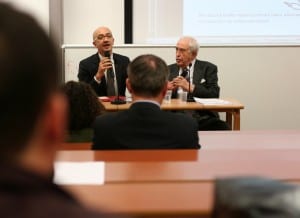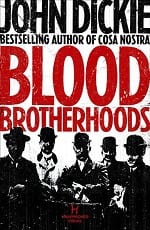How to have visions and influence people
By uclektm, on 18 March 2014
“My central enquiry is how people in different social groups use persuasion to achieve what they want, and what this suggests about different people.”
It could be the opening of a new age psychology book, but it’s actually the basis of Dr Antonio Sennis’s (UCL History) research into the Middle Ages, amiably shared with us in a 13 March Lunch Hour Lecture, titled “Medieval Languages of Persuasion”.
So, what exactly can we learn about medieval Italian society based on the methods people used to influence each other?
A world of persuasion
Dr Sennis illustrated some of the key features of persuasion in this period through a topical example.
At UCL, we are persuaded to attend the Lunch Hour Lectures through a relatively gentle advertising campaign involving some unobtrusive posters and emails.
Perhaps we might feel somewhat dumber for our non-attendance, but the campaign seems underpinned by the kind of do-as-you-like liberalism that we expect from our democracy. Right? (more…)
 Close
Close




